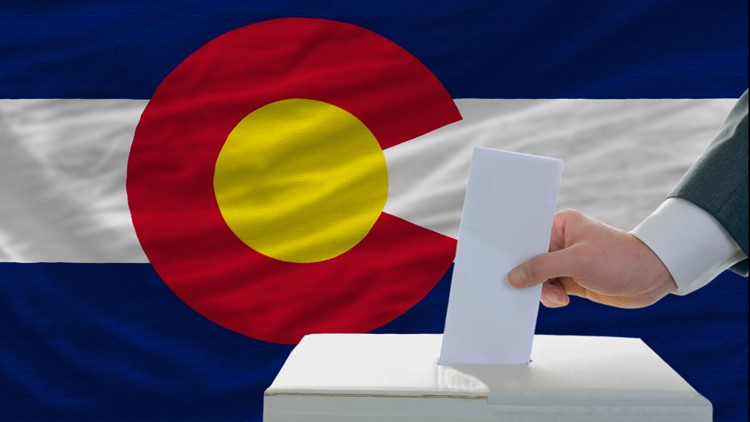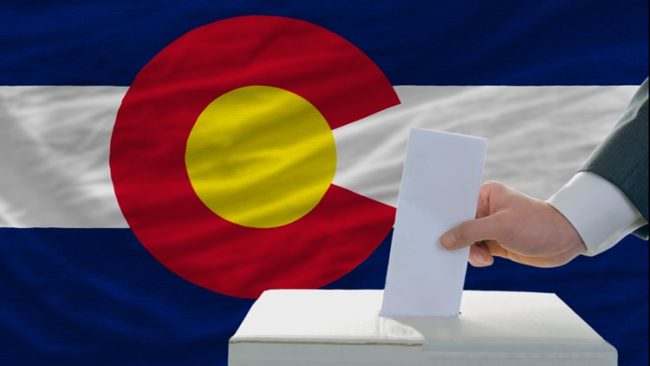We received our 2020 State Ballot Information Booklet yesterday for November’s election. There are 11 statewide measures up for voter approvals: amendments to the state constitution, amendments to state law, a tax question, and a referendum on a passed state law. Here are my thoughts after going through them all.
Amendment B: Repeal the Gallagher Amendment
This one gets kind of deep in the weeds of the mess that is Colorado state taxation, a result of conflicting voter amendments over the past few decades whip-sawing between “taxes bad!” and “government services essential!”
The 1982 Gallagher Amendment locked up the proportion between residential (45%) and business (55%) property tax revenue each year, which causes a mess given that (a) property values have gone up at different rates (residential is now 80% of the property value in the state, up from 53% in 1982), and (b) there is a lock on the nonresidential assessment rate.
Bottom line, if this passes, the tax rate for residential property will likely stay stable, leading to increasing taxes (as property values rise), combating programmed drops in local and state tax revenue and, in turn, public services. That seems reasonable to me, even as a person whose property tax costs are likely to go up. I’ll keep reading on the arguments about this, but my vote is Probably YES.
Amendment C: Conduct of Charitable Gaming
This amendment lets new non-profits more quickly run bingo and raffle games after they start, and hire professionals to do so. That sounds like a great way to implement “soft” for-profit gambling under the guise of charity. NO.
Amendment 76: Citizenship Qualification of Voters
Populist amendment to restrict all voting to only US citizens. A solution in search of a problem. Bah. NO.
Amendment 77: Local Voter Approval of Casino Bet Limits and Games
Colorado allows low-stakes gambling (certain games, bet limits of $100) in three old-timey towns up in the mountains: Black Hawk, Central City, and Cripple Creek. This proposition allows local voters there to add additional games and new bet limits, with added revenues mostly going to community colleges.
Meh. I don’t see any need to turn those towns into even bigger gambling meccas, let alone the costs of gambling addiction problems. The idea that all this only affects those three communities, when they draw on the population of all over the state to visit and drop their money at the tables, doesn’t pass the laugh test.
I also dislike, on principle, the “let’s do this bad thing because we’ll give the revenues to a good cause” enticement. NO.
Proposition EE: Taxes on Nicotine Products
While in principle I am fine with taxing the snot out of tobacco consumption, and even with adding some sin taxation on highly addictive vaping products, there’s a certain illogic in using such increased taxes to pay for essential programs like education, as that then creates a perverse incentive to actually keep the revenue source (smoking, vaping) continuing at high levels — especially perverse, since part of the tax revenues is to pay for “tobacco education” that would reduce such revenues. Still, I’m Probably YES.
Proposition 113: Adopt Agreement to Elect US President by National Popular Vote
The state government passed a bill this year to make Colorado part of the National Popular Vote Interstate Compact (NPVIC), which commits the state to selecting its presidential electors based on the national popular vote (once an electoral majority of states join the compact). It’s a cheap-ass but effective way to bypass the Electoral College mess embedded in the US Constitution.
This is a citizen-initiated referendum on a passed bill (the first successfully petitioned referendum since 1932), filed by folk who think the Electoral College is really keen because it’s netted them two GOP Presidents in the last few decades who ought to have lost. They also seem to think it’s very unfair that, under it, cities with more people in them would get voting power actually proportional to their sizes. That they are couching their arguments in the dishonest assertion that this is “protecting Colorado’s vote” doesn’t lend them any more credibility. Bah. YES.
Proposition 114: Reintroduction and Management of Gray Wolves
This allows state management (under federal endangered species supervision) to reintroduce and manage gray wolves in Colorado, with state funds helping ranchers who lose livestock to the wolves.
Yay for wolves. YES.
Proposition 115: Prohibit Abortions after 22 Weeks
Colorado conservatives perennially put up an anti-abortion measure, which perennially gets shot down (and probably pulls more liberals to the polls than would do so otherwise). This year’s edition avoids “personhood” bits by simply dropping in an arbitrary 22 week limit except in cases where the woman’s life is physically in danger.
My personal belief is that decisions about abortions should be made by the mother involved, hopefully in consultation with a physician (and, where appropriate, in consultation with the father). Late-term abortions are very rare (1.3% would fall into this category), and a number of the grave factors involved in them are not covered by this one-size-bans-all bill.
I also find an intellectual dishonesty in putting the legal burden — fines and medical license suspension — on the doctors involved. If abortion is the grave moral wrong that the proposition’s supporters assert it is, exempting the woman involved from penalties is solely pandering in order to pass the proposal. NO.
Proposition 116: State Income Tax Rate Reduction
“Taxes bad!” is not good public policy. Especially in a year when state taxes are already strained beyond the breaking point. NO.
Proposition 117: Voter Approval for Certain New State Enterprises
Another tax policy snafu. The state has formed various state enterprises over the years, from the Colorado Lottery to state universities to the state’s Unemployment Insurance and Parks & Wildlife groups. These enterprises charge fees for specific services (e.g., lottery tickets, hunting licenses, tuition), rather than drawing on general tax revenue.
The distinction is that under the early 90s TABOR (Taxpayer Bill of Rights) initiative, which is responsible for 75% of the zaniness in the state legislature, taxes cannot be initiated or increased without voter approval, but fees can be. Further, state enterprises are exempt from TABOR budget growth limits.
The proposition basically calls large state enterprises a runaround of TABOR, and so would require taxpayer voting before they were created.
Bah. Anything that carves out exemptions to TABOR is fine by me. NO.
Proposition 118: Paid Family and Medical Leave Insurance Program
Sets up a program, like it says, that would function a lot like Unemployment Insurance for family leaves (intersecting with the federal unpaid Family Medical Leave Act and state-mandated sick leave provisions). This would cover people taking time off for birth/adoption, care for a family member with a serious health condition, for circumstances around a family’s active duty military services, or for a short term leave dealing with issues of domestic abuse, sexual assault/abuse, and stalking.
This all seems like a fine and civilized idea. The counter-arguments that it will be very complicated and that it will actually cost money, are both expected and insufficient. It’s the right thing to do. YES.
Other Stuff
We also have a mill levy increase for Littleton Public Schools. YES.
Do you want to know more?
- State Amendments and Propositions
- Ballotpedia’s Colorado Ballot Measures
- Colorado Public Radio guide
- 5280 guide
- Denver Post guide
- ColoradoPolitics guide


One thought on “Looking at the 2020 Colorado ballot propositions”